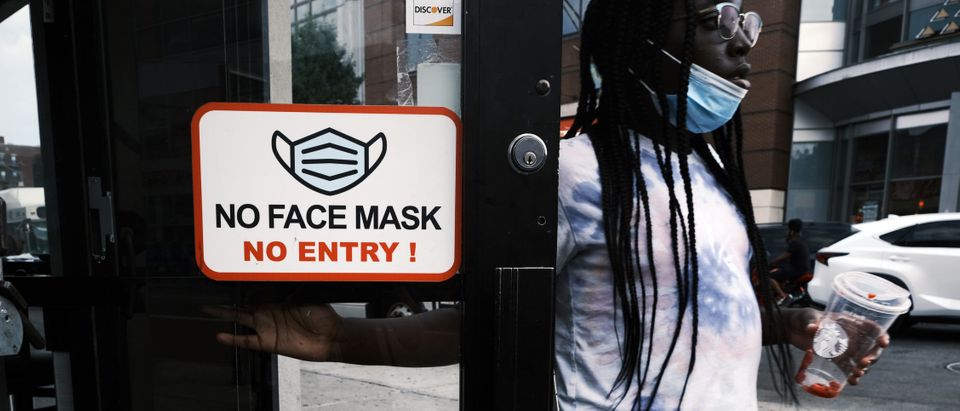A recent poll found that, despite the proliferation of vaccines, Americans are just as anxious about COVID-19 now as they were last winter.
Just over 40% of Americans are “extremely” or “very” worried about contracting the virus themselves, or the virus infecting someone else in their family, according to a poll from The Associated Press-NORC Center for Public Affairs Research. During a surge of COVID-19 cases in January, when vaccines were not yet publicly available, the research center found that 43% of Americans were extremely or very worried about getting the virus.
New AP-NORC poll: Americans’ worries about COVID-19 have reached their highest levels since winter, as the delta variant rages and more state governments and school districts adopt masking and vaccination requirements. https://t.co/Kxewkw80ax
— The Associated Press (@AP) August 20, 2021
The percentage of Americans worried about contracting COVID-19 has more than doubled since June as the delta variant has spread throughout the country, the Associated Press reported.
Yet, over the course of 2021, COVID-19 vaccines, which are still effective against the delta variant, have become widely available to the public. As of Thursday, almost 200 million Americans have received at least one COVID-19 vaccination shot and over half of the U.S. population is fully vaccinated, Centers for Disease Control and Prevention (CDC) data shows. (RELATED: It Turns Out Those Plastic Barriers Put Up To Stop COVID-19 May Actually Make It Easier To Spread)
The Associated Press-NORC also asked respondents if they favored mandating vaccines in certain public situations. Just under six in ten respondents said they favor requiring proof of vaccination in order to travel on an airplane, while a quarter said they opposed and 17% said they had no opinion, the poll said. Of the poll’s respondents, 56% said they favored requiring proof of vaccination to “Attend crowded public events, like concerts, sporting events or movies,” while 27% opposed and 17% were uncertain, according to the AP.
The poll also found that just over a majority of respondents, 51%, said they favored vaccination checks for people to go out to bars or restaurants. 28 percent and 21% were opposed or had no opinion, respectively.


